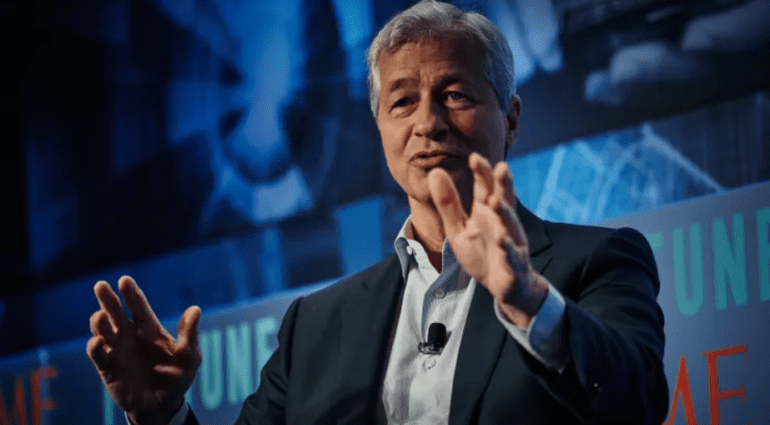TL;DR:
- JPMorgan Chase CEO Jamie Dimon is enthusiastic about AI’s potential to revolutionize the workplace.
- He foresees a 3½-day workweek as AI transforms the industry, promoting a healthier work-life balance.
- JPMorgan’s substantial AI investments promise substantial value across multiple functions.
- Acknowledges that AI will replace some jobs but plans to transition displaced workers.
- A Goldman Sachs report suggests that AI could affect up to 300 million jobs worldwide.
- Pew Research Center indicates that 1 in 5 American workers have roles with high AI exposure.
- AI’s positive impact includes improving labor productivity and boosting global GDP.
- Dimon’s emphasis on accessibility for leaders underscores his belief in in-person work.
- JPMorgan Chase’s return-to-office strategy aligns with Dimon’s vision, requiring managing directors to work in the office five days a week.
Main AI News:
In a recent interview with Bloomberg TV, Jamie Dimon, the CEO of JPMorgan Chase, unveiled his optimistic outlook on the transformative potential of artificial intelligence (AI) within the banking industry. Dimon believes that AI, already integrated into various facets of the bank’s operations, will pave the way for a paradigm shift toward a shorter workweek.
Dimon’s vision is profound, as he foresees a future where the average workweek will be reduced to a mere 3½ days, a transformation driven by the capabilities of AI. He underlines the monumental impact of technology on human health, stating, “Your children are going to live to 100 and not have cancer because of technology.” Such advancements, according to Dimon, will enable a healthier and more balanced lifestyle for the workforce.
JPMorgan Chase’s substantial investments in AI are poised to yield substantial benefits across the organization. The bank has strategically harnessed AI’s capabilities in research, trading, customer service, and various other functions, contributing to enhanced efficiency and productivity. Dimon asserts that these investments will deliver substantial value to the bank’s stakeholders.
However, Dimon acknowledges that AI’s integration is likely to disrupt certain job roles within the bank, a phenomenon not unique to JPMorgan. He remarks, “Technologies always replace jobs,” emphasizing that the changing landscape of work is inevitable. Despite these disruptions, Dimon remains committed to providing opportunities for displaced workers. With the bank’s annual recruitment of approximately 30,000 employees, he envisions facilitating their transition to new roles and locations within the organization.
The impact of AI extends far beyond the banking sector. A recent report from Goldman Sachs suggests that up to 300 million jobs worldwide could be affected by AI. Moreover, Pew Research Center reports that approximately one in five American workers holds a job with “high exposure” to artificial intelligence, raising questions about the potential to either enhance or replace these roles.
Nevertheless, the silver lining lies in the creation of new job opportunities and economic growth. AI technology, as indicated by Goldman Sachs, has the potential to significantly improve labor productivity and boost global GDP by as much as 7% over time.
Dimon’s advocacy for a shortened workweek, while making headlines, maybe more about optimizing efficiency than accommodating flexibility. His long-standing critique of remote and hybrid work arrangements underscores his belief that accessibility is integral to leadership. While acknowledging that remote work can be effective in specific roles, such as coding and research, Dimon contends that certain leadership positions necessitate a more hands-on approach, emphasizing the importance of being accessible to one’s team.
JPMorgan Chase’s approach to the return-to-office transition aligns with Dimon’s philosophy. After initiating its return-to-office campaign in September 2020, the bank has gradually shifted toward an in-office model. In April 2023, it reinforced this stance by instructing managing directors to work from the office five days a week. Dimon’s unwavering conviction in the importance of accessibility underscores his vision of effective leadership within the evolving landscape of AI-powered banking.
Conclusion:
Jamie Dimon’s perspective on AI and the prospect of a shorter workweek offers a glimpse into the transformative potential of technology within the banking industry. As AI continues to reshape the workforce, the challenge lies in balancing the benefits of innovation with the responsibility to provide opportunities for those impacted by change. Ultimately, the future of work will be shaped by the delicate interplay between AI-driven efficiency and human leadership.

